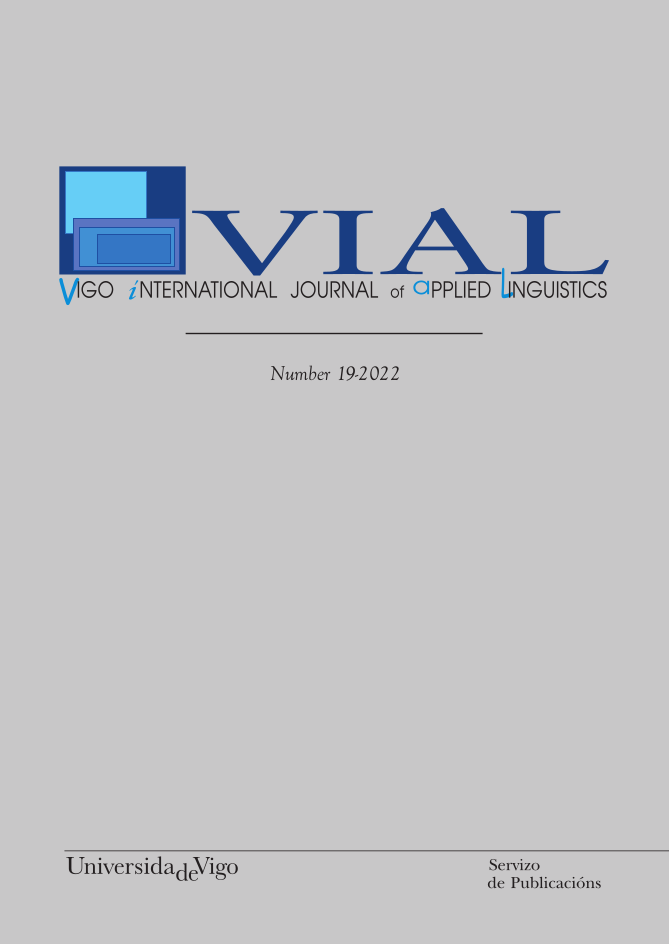Second language acquisition of Spanish prosody by Chinese speakers: Nuclear contours and pitch characteristics
DOI:
https://doi.org/10.35869/vial.v0i19.3762Schlagworte:
Nuclear contour, pitch characteristics, L2 speech acquisition, prosodic transfer, Peninsular Spanish by L1 Chinese speakersAbstract
Despite the increasing number of studies in L2 prosody, little research has been carried out on the Chinese-Spanish language pair. This article sets out to examine the L2 acquisition of nuclear contours and pitch implementation details of Spanish spoken by Chinese speakers. To this end, 555 utterances (produced by 37 informants) were analyzed within an autosegmental-metrical framework, and pitch values were evaluated using long-term distributional (LTD) and pitch dynamism quotient (PDQ) measures. The results suggest a hierarchy of difficulties in acquiring the prosodic features of different sentence types. The most salient intonational error made by the Chinese learners was the tendency to replace low nuclear accents with high/rising tones. Furthermore, the higher pitch level, narrower span, and lower F0 variance found for Chinese speakers lend support to previous hypotheses which proposed a general pitch compression pattern for L2 speech. Nevertheless, with increasing proficiency in Spanish, learners appear to develop more target-like intonation contours and pitch profiles. Finally, gender and stress effects as well as other interactions prove that L2 prosody learning is more complex than previously stated, and is influenced not only by the L1 system and oral competence but is also correlated with some psychological and sociocultural factors.
Downloads
Downloads
Veröffentlicht
Ausgabe
Rubrik
Lizenz
Revistas_UVigo es el portal de publicación en acceso abierto de las revistas de la Universidade de Vigo. La puesta a disposición y comunicación pública de las obras en el portal se efectúa bajo licencias Creative Commons (CC).
Para cuestiones de responsabilidades, propiedad intelectual y protección de datos consulte el aviso legal de la Universidade de Vigo.



